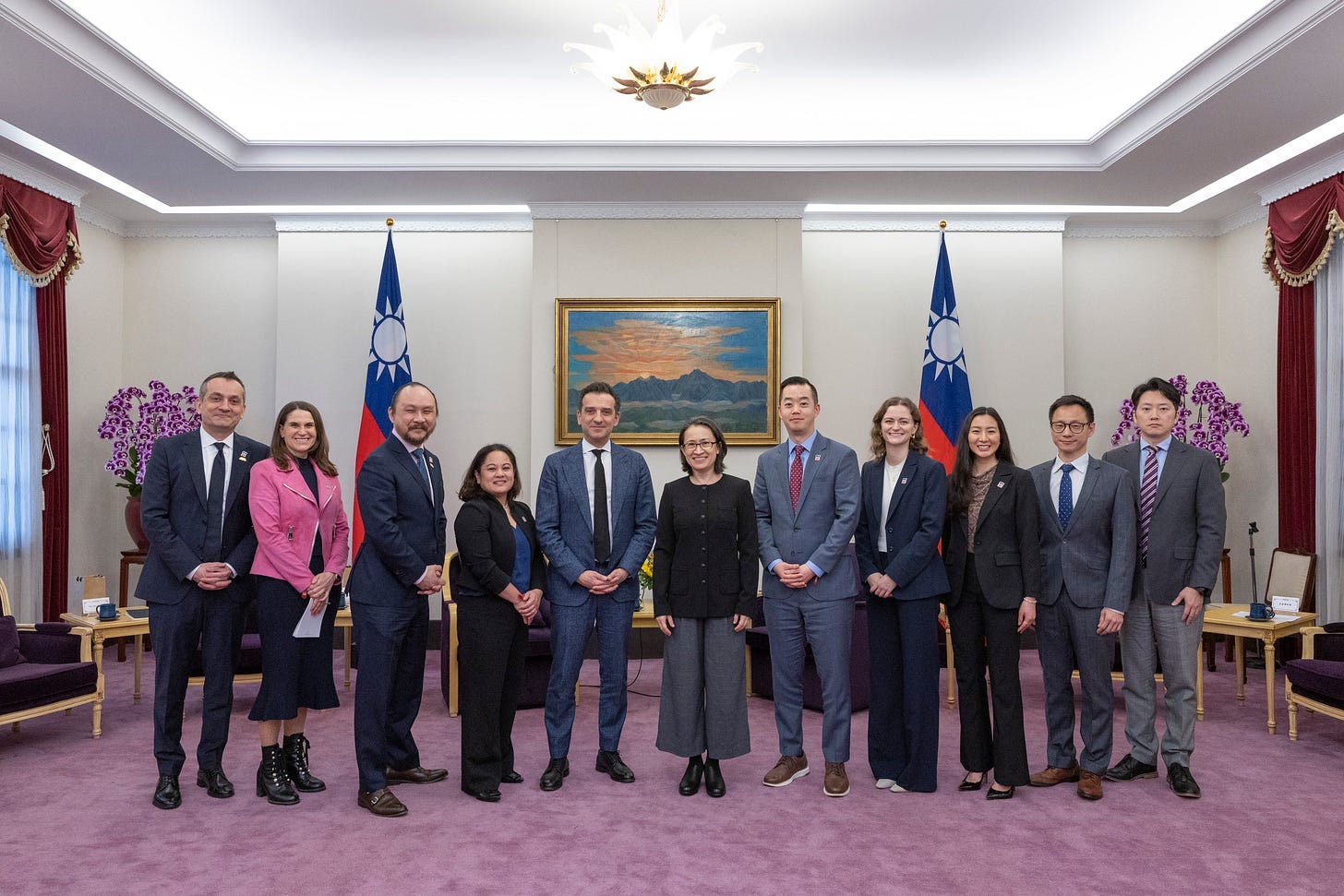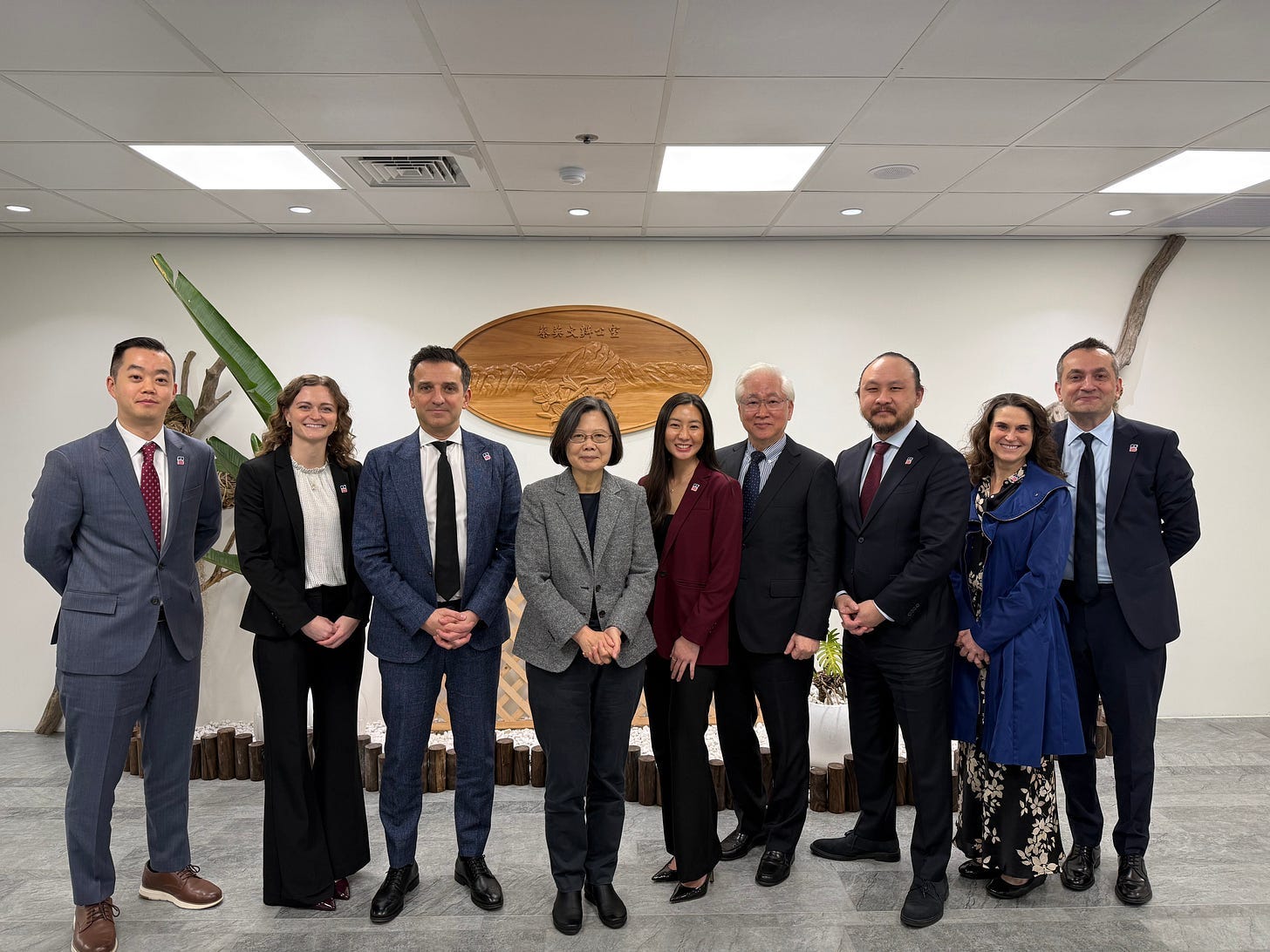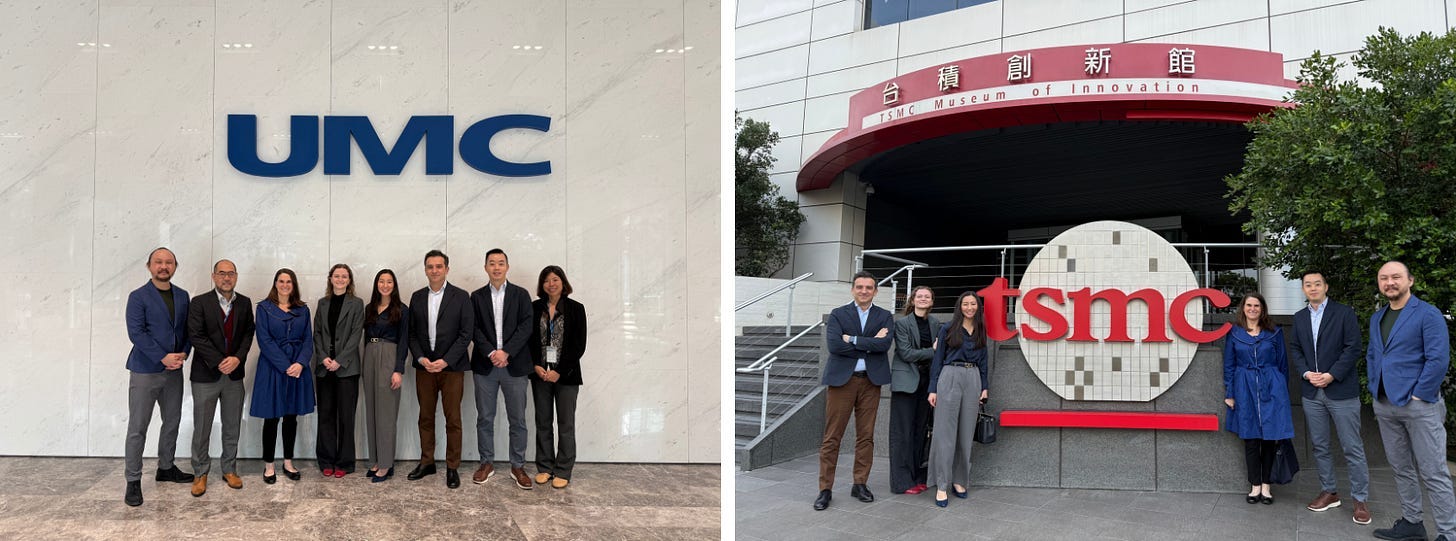Hello, I’m Ylli Bajraktari, President of the Special Competitive Studies Project. Last week, I led a team of SCSP staff to Taiwan to meet with senior Taiwan government and industry leaders. We also convened the International Strategy Forum (ISF) for its annual Global Summit in Taipei, bringing together 81 young leaders from 40 countries to experience ISF's themes on global security, innovation power, and democratic resilience. We chose Taiwan as the location because the island really sits at the nexus of all three of these important themes. SCSP has developed strong relationships across Taiwan’s political, military, and technological sectors, and we remain committed to supporting them in the years ahead. I hope you enjoy the reflection.
Taiwan: A Case Study in Resilience and Innovation
No country faces sustained, multidimensional pressure from China as acutely as Taiwan. Beijing is escalating its military exercises surrounding the island in both scope and scale. While we visited Taiwan last week, another undersea cable was cut, the fifth time this year, and Chinese sailors were detained for their involvement.
On the technology front, Taiwan grapples with persistent intellectual property theft, aggressive talent poaching by Chinese firms, and an intensified push by China’s semiconductor industry to close the gap and seize market share from Taiwanese companies, especially in legacy chips.
Diplomatically, China is seeking to isolate Taiwan by pressuring countries around the world to withdraw their recognition of the government in Taipei, while waging lawfare to exclude Taiwan from international fora - ranging from sports to health.
Yet, despite these challenges, Taiwan remains a global model of democratic resilience. While the Democratic Progressive Party (DPP) controls the presidency, the opposition Kuomintang (KMT) holds a legislative majority, demonstrating a robust multiparty system. Taiwan is also a leader in female political inclusion—the former president was Asia’s first female head of state not to come from a political dynasty, and the current vice president is widely regarded as a rising political star. The island enjoys freedom of press, expression, and assembly. Taiwan is a clear example - and a thorn to Beijing - that democracy and Chinese culture are not incompatible.


In terms of societal preparedness and resilience, Taiwan is actively enhancing its defense strategy, organizing its reserves based on models from Finland, Sweden, and Israel. Militarily, the government aims to increase defense spending from 2.5% to 3% of GDP. Although opposition voices have raised concerns about rising costs, there is a general sense that given the nature of threat they face, ultimately, national security will take precedence. There is also a broad recognition of the need to shift toward asymmetric warfare capabilities. During our visit, our team engaged with a leading Taiwanese drone company called Coretronic, which is striving to replicate DJI’s success, though scaling production remains a key challenge. Taiwan is actively building a non-red supply chain for drones, as the technology platform plays an increasingly important role in national security.
Whole-of-society defense resilience is also top of mind across Taiwan’s government. They are actively investing in satellite communications – in low and medium earth orbit, with plans to go to geosynchronous orbit as well (while pursuing other terrestrial alternatives). The recent cable-cutting incident underscores the importance of having both terrestrial and non-terrestrial backup communication networks. The government is also working to harden strategic economic sectors, strengthen civic preparedness and emergency response, and push back on the PRC’s pervasive cognitive offensives. Their belief is simple: peacetime preparedness is the only way to ensure continuity in crisis.
Economic Strategy & Energy Security
Taiwan’s foreign direct investments in mainland China have fallen dramatically – from around 70% some 15 years ago down to single digits last year, redirecting the resources elsewhere in Asia, the U.S., Latin America, Europe, and Africa – often in support of its diplomatic strategy. Energy security remains a pressing issue—while there is government interest in nuclear expansion, public concerns about safety and nuclear waste remain. Officials are hopeful that the new liquid natural gas (LNG) pipeline from Alaska to Japan could extend to Taiwan, mitigating vulnerabilities in the event of a blockade.
Technology & Innovation
During his Presidential Inauguration last year, Taiwan’s President Lai Ching-te articulated a bold vision of transforming the nation into an “AI island.” However, transitioning from a hardware-centric economy to a software-driven one requires systemic changes, and leaders are acutely aware of the challenges ahead. Our visits to UMC and TSMC, Taiwan’s industry champions in manufacturing both legacy and leading-edge chips, reinforced the centrality of the semiconductor industry in Taiwan’s economic and geopolitical positioning. Semiconductor production is a mainstream topic of national discourse and a prestigious career path, underscoring Taiwan’s prominence on the global stage. The government is now actively encouraging people to pursue AI, in spite of lacking software capabilities.
Taiwan’s critical importance in the semiconductor supply chain also affords it an opportunity to build its overseas ties, particularly with the United States. TSMC is building a leading-edge manufacturing facility in Arizona, and just yesterday, TSMC CEO C.C. Wei joined President Trump to announce a new TSMC investment in the United States of some $100 billion over the next four years.
Washington & Taipei Relations
During our trip, it was evident that policymakers in Taipei are closely monitoring the ongoing Ukraine peace talks, and assessing their potential impact on U.S. strategic commitments and how the outcome might influence China’s actions. In addition, there is concern about possible tariffs on Taiwanese exports to the United States and what they could signal about Washington’s broader approach to Taiwan.
Taiwan’s Enduring Strength
Despite these geopolitical and economic challenges, Taiwan continues to thrive as a vibrant democracy with an innovation ecosystem that is unparalleled. From the moment our SCSP team arrived on the island, there was an unmistakable energy—its political leaders are exceptionally well-prepared, and the nation deeply values its relationship with the United States. Taiwan stands as a model of democratic success and technological excellence, a reality that many nations envy.
The geopolitical dynamics of this decade will decisively shape the strategic contours of the 21st century. Taiwan sits at the fulcrum of this inflection point, where the balance of power, technological primacy, and global stability intersect. The United States and its allies must adopt a deliberate and sustained approach to ensure Taiwan remains resilient against coercion, recognizing that its future is inextricably linked to the broader equilibrium of the international order.
Free Course Coming in One Week!
We have been developing something special with our partners at Coursera, and it’s coming soon! Next week, we are launching a brand new course, AI in National Security: Integrating Artificial Intelligence into Public Sector Missions.
Guided by senior national security leaders, this free course – filled with original content – will deliver practical AI applications, screencast demos, and interactive exercises to help participants:
Understand why AI adoption is critical for the national security workforce,
Effectively apply AI tools today to enhance operations, and
Become a driving force for AI adoption within their organization.





